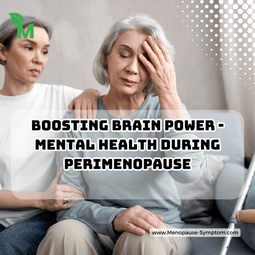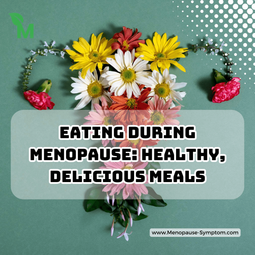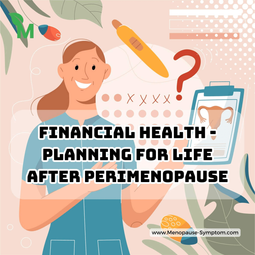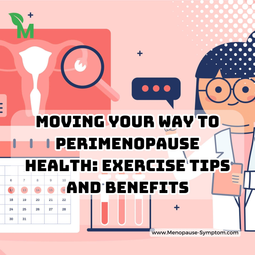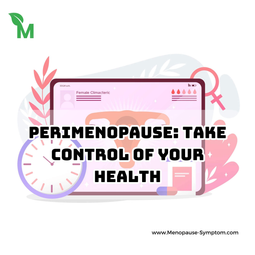Perimenopause: Vitamin D And Calcium - Essentials For Bone Health
On
02/09/2024Reading time:
9 min
Summary:
When entering perimenopause, many women begin to experience both physical and psychological changes. During this stage, the ovaries gradually reduce the production of estrogen, leading to physical and psychological changes.
Perimenopause is not a disease but a normal physiological process. Due to hormonal changes in the body, during this stage, women often experience symptoms such as hot flashes, night sweats, irregular menstruation, insomnia and osteoporosis. Perimenopause is not only a transition period to menopause but also an opportunity for women to pay more attention to their health. Women should learn about perimenopause and menopause to prepare knowledge and appropriate methods for themselves in the future.
This article will discuss a solution to a problem that few women pay attention to because it occurs very slowly and people rarely realize it in time, which is osteoporosis.
Why are Vitamin D and Calcium important?
Vitamin D and calcium play a key role in maintaining bone health, especially after the age of 30. When women enter the perimenopause stage, the decline in estrogen hormone can affect bone density. Estrogen plays a protective role in bones, so when this hormone decreases, the risk of osteoporosis increases. Therefore, adequate vitamin D and calcium supplementation will ensure strong bones, reducing the risk of fractures during menopause.
Vitamin D - The key to bone health
Vitamin D not only plays a role in calcium absorption but also keeps bones strong. Vitamin D deficiency can lead to osteoporosis and an increased risk of fractures. To ensure adequate vitamin D levels, women in perimenopause should regularly expose themselves to sunlight - a natural source of vitamin D. In addition, foods such as salmon, eggs and dairy products are also rich sources of vitamin D.
Calcium - Building Material for Bones
Calcium is known as the main "building material" for bones. During perimenopause, calcium needs increase to compensate for natural losses during the aging process. A diet rich in calcium will maintain bone density and prevent osteoporosis. Foods rich in calcium include milk, cheese, nuts, green vegetables and soybeans.
Combining Vitamin D and Calcium
When supplementing both vitamin D and calcium, the effect will increase significantly. Vitamin D not only supports the absorption of calcium from food but also maintains stable blood calcium levels. This is extremely important to ensure bone health during perimenopause. Supplementing both of these nutrients at the same time will help women improve bone health, thereby minimizing the risk of bone-related diseases.
Recommended dosage
According to medical experts, women in premenopausal age should consume about 1,200mg of calcium and 800-1,000 IU of vitamin D per day. However, it should be noted that each person's body is different, so consulting a doctor to get the right dosage is essential.
A healthy lifestyle
In addition to supplementing vitamin D and calcium, maintaining a healthy lifestyle is also very important. Regular exercise, especially strength and movement exercises, will help strengthen bones. Exercises such as walking, yoga, and jumping rope not only help maintain physical health but also improve the psychology of women in premenopausal stage.
A Healthy Lifestyle
In addition to vitamin D and calcium supplementation, maintaining a healthy lifestyle is also important. Regular exercise, especially strength and mobility exercises, will help strengthen bones. Exercises such as walking, yoga, and jumping rope not only help maintain physical health but also improve the mental health of women during perimenopause.
Avoid bad habits
During perimenopause, bad habits such as smoking and drinking alcohol can increase the risk of osteoporosis. Smoking reduces the body's ability to absorb calcium, while alcohol can increase calcium excretion through the kidneys. Therefore, giving up these habits will contribute to protecting bone health and improving the quality of life.
Awareness and importance of bone health
Perimenopause is an important period in a woman's life, and taking care of bone health is something that can not be ignored. By focusing on vitamin D and calcium supplementation, combined with a healthy lifestyle, women will be able to protect bone health and reduce the risk of osteoporosis-related problems during menopause.
Be positive during perimenopause
Don't let perimenopause become a worry, instead, see it as an opportunity to take better care of yourself. Women should create healthy habits, combine a reasonable diet with vitamin D and calcium supplementation to keep bones strong. Remember that bone health is not only important during perimenopause but also affects life later.
Conclusion
Perimenopause is an important transition, and vitamin D and calcium supplementation not only helps maintain bone health but also improves quality of life. Be proactive in taking care of yourself to have a healthy, active life during and after menopause. From there, women can be confident and enjoy life in every moment.
Finally, being fully equipped with knowledge about perimenopause, vitamin D and calcium will help women not only understand their bodies better but also know how to take care of their health in the best way. Always try to maintain a healthy lifestyle and keep your bones strong to overcome this stage with the most optimistic spirit!
Source: Team MPS compiled, analyzed and wrote. Please dont reup without source. Many thanks.

